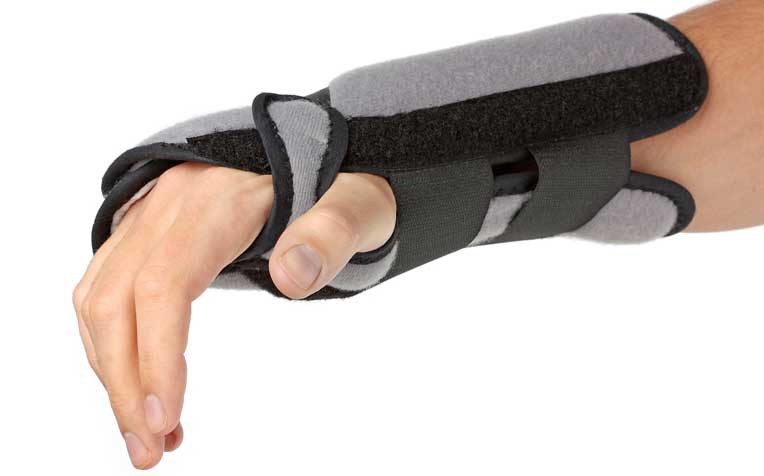
Wear braces to temporarily relieve pressure and ease pain.
Diagnosing osteoarthritis
The specialist will begin by taking a detailed history of your problem and past medical problems, followed by a physical examination. He may then proceed to other tests, such as:
X-rays
This is the most commonly performed test to evaluate the status of the affected joint and the alignment of the joint. Normal x-rays are safe, simple and pain-free.
Blood tests
Depending on the clinical findings, blood may be drawn for special testing, to rule out other causes of joint pain, e.g. due to rheumatoid arthritis, gout or infection.
Joint aspiration
Occasionally, especially when the joint is very swollen, the doctor may choose to suck some fluid out of the swollen joint for special testing. Removal of joint fluid also sometimes relieves pain.
Treatment of osteoarthritis
The goals of treatment for osteoarthritis are:
- Pain relief
- Maintenance of function
- Prevention of associated deformities
- Patient education
The treatment for osteoarthritis depends on the severity of the disease and the patient’s own lifestyle expectations. Early cases of osteoarthritis can generally be treated with:
- Rest and lifestyle modification, such as weight loss and cessation of smoking
- Use of aid (e.g. a walking stick). Use of good shoes is also helpful for relieving symptoms in some cases of osteoarthritis
- Exercise and physiotherapy to strengthen muscles and improve joint flexibility
- Medication
In osteoarthritis of the hand, rest can be accomplished by selectively immobilising the joint in a splint. "Splinting is initially done for a period of 3-4 weeks, during which the splint is worn continuously," say doctors from the Department of Rheumatology & Immunology at Singapore General Hospital (SGH), a member of the SingHealth group.
This is usually combined with non-steroidal anti-inflammatory medication (NSAIDs) taken at the same time. If there is an improvement in symptoms, use of the splint during the day is progressively diminished over the course of the coming months.
Use of NSAIDS to treat osteoarthritis
Gastrointestinal intolerance remains one of the major factors limiting the prolonged use of NSAIDs and may require temporary or permanent discontinuation of the anti-inflammatory agent. Concomitant use of H2 blockers, omeprazole, or misoprostol, a prostaglandin analogue that counteracts the mucosal effects of NSAIDs, may mitigate some of the gastrointestinal effects. Nephrotoxicity is a well-known complication of NSAIDs, and patients with pre-existing renal insufficiency should not take NSAIDs for extended periods.
Ref: S13
Contributed by


















 Get it on Google Play
Get it on Google Play